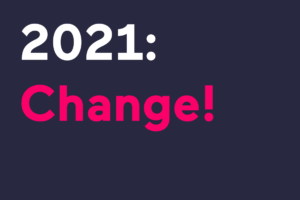
In future, we will position Cribb’s activities much more broadly in order to offer companies coordinated projects to operationalize their transformation, ensuring that all strands run in a coordinated process towards the strategic goals of the company and mesh optimally with each other: assessing managers and their further development, planning and implementing programs to adapt the corporate culture, training new work methods, employee development and lifelong learning, and developing an organization in which is more robust in coping with constant change.
The situation is clear: the need for managing directors, board members and supervisory board members with strong digital skills remains high and we want to remain the leading HR consultancy in this field. But our goal goes further: to be the partner of these corporate leaders in the (re)structuring of their companies. We do not see any consultancy in the market today that meets this requirement. Cribb, with its experience, is the ideal nucleus for the development of such a holistic consultancy.
1998 was the year in which we at Cribb started to help the emerging digital economy build and grow. It wasn’t until six months after Cribb was founded that Google was launched and six years later Facebook. These and many other US and European Internet icons found their way onto our customer list, as well as hundreds of other startups and grownups.
Over the past ten years, we have supported the digitization initiatives of many well-known companies – from SMEs to Dax30 – first by shaping the idea of the Chief Digital Officer as the right hand of the CEO, which we were among the first to propagate, and then by filling many management and board positions with digital experts. Our clients are now clear about their strategic options for action; they know what they need to achieve in the transformation over the next ten years.
But at the moment, everything is focused on Covid-19, and it is easy to forget that the next decade will determine which companies will lead the way in an increasingly digitalized economy. Therefore, companies need support now to implement the necessary transformation processes outside of innovation units across the board.
We see that in many companies there is a significant „knowing-doing gap“. In other words, the target image of the transformation is known, but it is unclear how the implementation can be managed in concrete terms given the immense complexity of the topic.
Added to this is the challenge of managing a remote workforce that has been created virtually overnight. The technical implementation of Remote Work has worked surprisingly smoothly, but the human and procedural challenges still need to be solved. The onboarding of new employees, building and maintaining team spirit and a sense of belonging to the company, management through emotional intelligence and much more is far more challenging in decentralized teams.
In the 2020s, the focus will be on the wholesale implementation of transformation strategies. The phase in which initial testing, learning and experimentation were the main focus is over. Now it is a matter of „change at scale“ and thus of a coordinated, simultaneous approach on many fronts, always with employees and the organization in the centre of attention.
To help our customers meet these challenges, we have started to launch a number of new services. Active succession planning for all key positions, board advisory and HR training have already been started. Further consulting services are in preparation, and we are also in talks with other partners to build out capabilities.
Major changes lie ahead. We look forward to solving them with our customers and partners!



